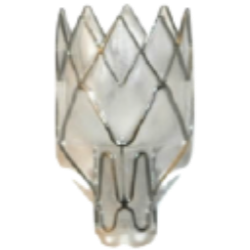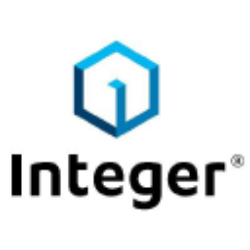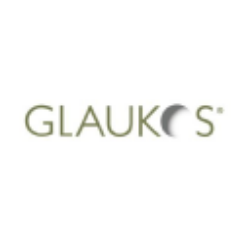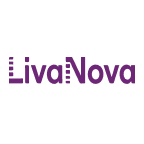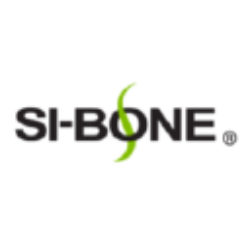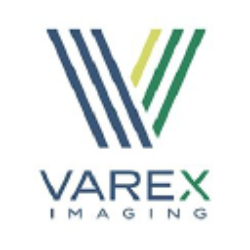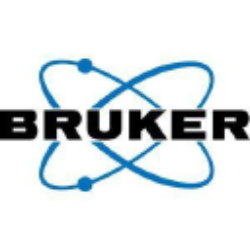FNA

Paragon 28, Inc.
FNA
(1.5)10,79 USD
-21.55% ROA
-38.77% ROE
-7.68x PER
439.432.445,00 USD
75.29% DER
0% Yield
-24.86% NPM
Paragon 28, Inc. Stock Analysis
Paragon 28, Inc. Fundamental Analysis
Fundamental analysis in stock investing is like studying the foundation of a house before buying it. It involves looking at a company's financial health, like its earnings, assets, and debts, to determine if it's a good investment based on its fundamental strength and potential for growth.
| # | Analysis | Rating |
|---|---|---|
| 1 |
DER
The stock has a minimal amount of debt (22%) relative to its ownership, showcasing a strong financial position and lower risk for investors. |
|
| 2 |
Revenue Growth
With a track record of consistent revenue growth in the past five years, this company presents a compelling opportunity. |
|
| 3 |
Assets Growth
Over the past five years, this company's revenue has consistently increased, demonstrating a robust financial performance that makes it an appealing opportunity. |
|
| 4 |
Dividend Growth
The company's dividend growth has remained unchanged for three years, signaling a lack of positive momentum and making it a less favorable investment choice. |
|
| 5 |
Dividend
No dividends from the company in the past three years raises doubts about its profitability for shareholders. |
|
| 6 |
Buffet Intrinsic Value
Based on Warren Buffett's formula, the company's stock seems overpriced (-14), indicating a potential drawback for investors as its market price exceeds its estimated intrinsic value. |
|
| 7 |
ROE
The stock's ROE indicates a negative return (-38.21%) on shareholders' equity, suggesting poor financial performance. |
|
| 8 |
ROA
The stock's ROA (-27%) suggests that it's struggling to generate profits from its assets, making it a risky choice for investment. |
|
| 9 |
PBV
The stock's elevated P/BV ratio (4.41x) raises concerns about its overvaluation, making it an imprudent choice for investors seeking value. |
|
| 10 |
Net Profit Growth
This company's net profit has remained flat over the past five years, suggesting a lack of growth and making it a less attractive investment opportunity. |
|
| 11 |
Graham Number
The company's Graham number suggests that its stock price is overestimated, implying that it may not be a promising investment opportunity. |
Paragon 28, Inc. Technical Analysis
Technical analysis in stock investing is like reading the patterns on a weather map to predict future weather conditions. It involves studying past stock price movements and trading volumes to make predictions about where a stock's price might go next, without necessarily looking at the company's financial health.
| # | Analysis | Recommendation |
|---|---|---|
| 1 | Awesome Oscillator | Hold |
| 2 | MACD | Buy |
| 3 | RSI | Hold |
| 4 | Stoch RSI | Sell |
Paragon 28, Inc. Price Chart
Financial Statements
Financial statements are like report cards for companies. They show how much money a company makes (income statement), what it owns and owes (balance sheet), and where it spends its money (cash flow statement), helping stock investors understand if a company is healthy and worth investing in.
Income Statements
An income statement for a company is like a scoreboard for its profits and losses. It shows how much money the company made (revenue) and how much it spent to make that money (expenses), helping stock investors see if a company is making a profit or not.
Revenue in stock investing is the total amount of money a company earns from its sales, and it's a key factor that investors consider to assess a company's financial performance and growth potential.
| Year | Revenue | Growth |
|---|---|---|
| 2019 | 106.280.000 | |
| 2020 | 110.981.000 | 4.24% |
| 2021 | 147.464.000 | 24.74% |
| 2022 | 181.383.000 | 18.7% |
| 2023 | 211.132.000 | 14.09% |
| 2023 | 216.389.000 | 2.43% |
| 2024 | 244.064.000 | 11.34% |
Research and Development Expenses are the costs a company incurs to create and improve its products or services, which can be important for investors to evaluate a company's innovation and potential for future growth.
| Year | Research and Development Expenses | Growth |
|---|---|---|
| 2019 | 10.297.000 | |
| 2020 | 11.171.000 | 7.82% |
| 2021 | 16.128.000 | 30.74% |
| 2022 | 24.650.000 | 34.57% |
| 2023 | 28.976.000 | 14.93% |
| 2023 | 30.078.000 | 3.66% |
| 2024 | 28.332.000 | -6.16% |
General and Administrative Expenses are the costs a company incurs to run its day-to-day operations, such as office rent, salaries, and utilities, which investors consider to understand a company's overall efficiency and management effectiveness.
| Year | General and Administrative Expenses | Growth |
|---|---|---|
| 2019 | 0 | |
| 2020 | 0 | 0% |
| 2021 | 0 | 0% |
| 2022 | 0 | 0% |
| 2023 | 0 | 0% |
| 2023 | 0 | 0% |
| 2024 | 0 | 0% |
EBITDA stands for Earnings Before Interest, Taxes, Depreciation, and Amortization. It is a measure that helps stock investors analyze a company's profitability by looking at its earnings without considering certain expenses. This helps to get a clearer picture of the company's financial performance and its ability to generate cash flow.
| Year | EBITDA | Growth |
|---|---|---|
| 2019 | 6.820.000 | |
| 2020 | 12.011.000 | 43.22% |
| 2021 | -2.300.000 | 622.22% |
| 2022 | -47.856.000 | 95.19% |
| 2023 | -12.532.000 | -281.87% |
| 2023 | -36.614.000 | 65.77% |
| 2024 | -24.628.000 | -48.67% |
Gross profit is the money a company makes from selling its products or services after subtracting the cost of producing or providing them, and it is an important measure for investors to understand a company's profitability.
| Year | Gross Profit | Growth |
|---|---|---|
| 2019 | 87.448.000 | |
| 2020 | 85.882.000 | -1.82% |
| 2021 | 119.440.000 | 28.1% |
| 2022 | 148.926.000 | 19.8% |
| 2023 | 169.556.000 | 12.17% |
| 2023 | 172.791.000 | 1.87% |
| 2024 | 164.580.000 | -4.99% |
Net income in stock investing is like the money a company actually gets to keep as profit after paying all its bills, and it's an important measure to understand how well a company is doing financially.
| Year | Net Profit | Growth |
|---|---|---|
| 2019 | 3.117.000 | |
| 2020 | 2.686.000 | -16.05% |
| 2021 | -13.693.000 | 119.62% |
| 2022 | -67.326.000 | 79.66% |
| 2023 | -33.328.000 | -102.01% |
| 2023 | -47.841.000 | 30.34% |
| 2024 | -55.128.000 | 13.22% |
EPS, or earnings per share, is a measure that shows how much profit a company has earned for each outstanding share of its stock, and it is important for stock investors as it helps understand the profitability of a company and compare it with other companies in the market.
| Year | Earning per Share (EPS) | Growth |
|---|---|---|
| 2019 | 0 | |
| 2020 | 0 | 0% |
| 2021 | 0 | 0% |
| 2022 | -1 | 0% |
| 2023 | 0 | 0% |
| 2023 | -1 | 0% |
| 2024 | -1 | 0% |
Cashflow Statements
Cashflow statements show the movement of money in and out of a company, helping stock investors understand how much money a company makes and spends. By examining cashflow statements, investors can assess if a company is generating enough cash to pay its bills, invest in growth, and provide returns to stockholders.
Free cash flow is the leftover cash that a company generates after covering its operating expenses and capital expenditures, which is important for stock investors as it shows how much money a company has available to invest in growth, pay dividends, or reduce debt.
| Year | Free Cashflow | Growth |
|---|---|---|
| 2019 | -5.736.000 | |
| 2020 | -9.729.000 | 41.04% |
| 2021 | -24.606.000 | 60.46% |
| 2022 | -92.267.000 | 73.33% |
| 2023 | -91.920.000 | -0.38% |
| 2023 | -21.042.000 | -336.84% |
| 2024 | -14.112.000 | -49.11% |
Operating cash flow represents the cash generated or consumed by a company's day-to-day operations, excluding external investing or financing activities, and is crucial for stock investors as it shows how much cash a company is generating from its core business operations.
| Year | Operating Cashflow | Growth |
|---|---|---|
| 2019 | 12.298.000 | |
| 2020 | 1.111.000 | -1006.93% |
| 2021 | -3.317.000 | 133.49% |
| 2022 | -49.181.000 | 93.26% |
| 2023 | -63.890.000 | 23.02% |
| 2023 | -14.114.000 | -352.67% |
| 2024 | -10.229.000 | -37.98% |
Capex, short for capital expenditures, refers to the money a company spends on acquiring or upgrading tangible assets like buildings, equipment, or technology, which is important for stock investors as it indicates how much a company is investing in its infrastructure to support future growth and profitability.
| Year | Capital Expenditure | Growth |
|---|---|---|
| 2019 | 18.034.000 | |
| 2020 | 10.840.000 | -66.37% |
| 2021 | 21.289.000 | 49.08% |
| 2022 | 43.086.000 | 50.59% |
| 2023 | 28.030.000 | -53.71% |
| 2023 | 6.928.000 | -304.59% |
| 2024 | 3.883.000 | -78.42% |
Balance Sheet
Balance sheets provide a snapshot of a company's financial health and its assets (such as cash, inventory, and property) and liabilities (like debts and obligations) at a specific point in time. For stock investors, balance sheets help assess the company's overall worth and evaluate its ability to meet financial obligations and support future growth.
Equity refers to the ownership interest or stake that shareholders have in a company, representing their claim on its assets and earnings after all debts and liabilities are paid.
| Year | Equity | Growth |
|---|---|---|
| 2019 | 27.248.000 | |
| 2020 | 71.485.000 | 61.88% |
| 2021 | 192.194.000 | 62.81% |
| 2022 | 140.928.000 | -36.38% |
| 2023 | 177.741.000 | 20.71% |
| 2023 | 193.744.000 | 8.26% |
| 2024 | 146.835.000 | -31.95% |
Assets represent the valuable resources that a company owns, such as cash, inventory, property, and equipment, and understanding a company's assets helps investors assess its value and potential for generating future profits.
| Year | Assets | Growth |
|---|---|---|
| 2019 | 74.555.000 | |
| 2020 | 97.583.000 | 23.6% |
| 2021 | 234.545.000 | 58.39% |
| 2022 | 254.109.000 | 7.7% |
| 2023 | 340.699.000 | 25.42% |
| 2023 | 293.355.000 | -16.14% |
| 2024 | 310.467.000 | 5.51% |
Liabilities refer to the financial obligations or debts that a company owes to creditors or external parties, and understanding a company's liabilities is important for investors as it helps assess the company's financial risk and ability to meet its obligations.
| Year | Liabilities | Growth |
|---|---|---|
| 2019 | 47.307.000 | |
| 2020 | 26.098.000 | -81.27% |
| 2021 | 42.351.000 | 38.38% |
| 2022 | 113.181.000 | 62.58% |
| 2023 | 162.958.000 | 30.55% |
| 2023 | 99.611.000 | -63.59% |
| 2024 | 163.632.000 | 39.12% |
Paragon 28, Inc. Financial Ratio (TTM)
Valuation Metrics
- Revenue per Share
- 2.83
- Net Income per Share
- -0.68
- Price to Earning Ratio
- -7.68x
- Price To Sales Ratio
- 1.87x
- POCF Ratio
- -8.45
- PFCF Ratio
- -5.95
- Price to Book Ratio
- 2.98
- EV to Sales
- 2.14
- EV Over EBITDA
- -21.22
- EV to Operating CashFlow
- -9.73
- EV to FreeCashFlow
- -6.82
- Earnings Yield
- -0.13
- FreeCashFlow Yield
- -0.17
- Market Cap
- 0,44 Bil.
- Enterprise Value
- 0,50 Bil.
- Graham Number
- 5.22
- Graham NetNet
- -0.49
Income Statement Metrics
- Net Income per Share
- -0.68
- Income Quality
- 0.91
- ROE
- -0.33
- Return On Assets
- -0.2
- Return On Capital Employed
- -0.17
- Net Income per EBT
- 1.01
- EBT Per Ebit
- 1.39
- Ebit per Revenue
- -0.18
- Effective Tax Rate
- -0.01
Margins
- Sales, General, & Administrative to Revenue
- 0
- Research & Developement to Revenue
- 0.13
- Stock Based Compensation to Revenue
- 0.05
- Gross Profit Margin
- 0.74
- Operating Profit Margin
- -0.18
- Pretax Profit Margin
- -0.25
- Net Profit Margin
- -0.25
Dividends
- Dividend Yield
- 0
- Dividend Yield %
- 0
- Payout Ratio
- 0
- Dividend Per Share
- 0
Operating Metrics
- Operating Cashflow per Share
- -0.62
- Free CashFlow per Share
- -0.89
- Capex to Operating CashFlow
- -0.43
- Capex to Revenue
- 0.09
- Capex to Depreciation
- 1.23
- Return on Invested Capital
- -0.17
- Return on Tangible Assets
- -0.22
- Days Sales Outstanding
- 58.49
- Days Payables Outstanding
- 134.4
- Days of Inventory on Hand
- 560.05
- Receivables Turnover
- 6.24
- Payables Turnover
- 2.72
- Inventory Turnover
- 0.65
- Capex per Share
- 0.27
Balance Sheet
- Cash per Share
- 0,56
- Book Value per Share
- 1,77
- Tangible Book Value per Share
- 1.21
- Shareholders Equity per Share
- 1.77
- Interest Debt per Share
- 1.43
- Debt to Equity
- 0.75
- Debt to Assets
- 0.36
- Net Debt to EBITDA
- -2.69
- Current Ratio
- 3.57
- Tangible Asset Value
- 0,10 Bil.
- Net Current Asset Value
- 0,02 Bil.
- Invested Capital
- 254103000
- Working Capital
- 0,13 Bil.
- Intangibles to Total Assets
- 0.15
- Average Receivables
- 0,04 Bil.
- Average Payables
- 0,03 Bil.
- Average Inventory
- 100352000
- Debt to Market Cap
- 0.25
Dividends
Dividends in stock investing are like rewards that companies give to their shareholders. They are a portion of the company's profits distributed to investors, typically in the form of cash payments, as a way for them to share in the company's success.
| Year | Dividends | Growth |
|---|
Paragon 28, Inc. Profile
About Paragon 28, Inc.
Paragon 28, Inc. designs, develops, distributes, and sells foot and ankle surgical systems in the United States and internationally. It offers plating systems, including gorilla plating systems, such as lisfranc, lapidus, lateral column, calcaneus slide, and naviculocuneiform (NC) fusion plating systems; baby gorilla plate-specific screws, navicular fracture plates, and 5th metatarsal hook plates; and silverback plating systems. The company also provides precision guide technology for various procedures consisting of fusion, a procedure to address bunion deformities that fuses two bones on the big toe; first tarsometatarsal arthrodesis; and metatarsal osteotomy for bunion correction, medial column beaming for charcot foot reconstruction, ankle fusion plating, and NC joint arthrodesis. In addition, it offers monster, mini monster, and joust beaming screw systems for use in bone reconstruction, osteotomy, arthrodesis, joint fusion, ligament fixation, fracture repair, and fracture fixation; and APEX 3D total ankle replacement systems; total talus spacers to replace the talus and bone in the ankle that connects the leg and foot. Further, the company provides bunion or hallux valgus correction systems, including nail systems phantom intramedullary nail systems for the treatment of severe hallux valgus; and various orthobiologics comprising bone wedges, grafts, demineralized bone matrices, bone void fillers, synthetic materials, amniotic products, and a biocompatible collagen matrix, as well as PRESERVE bone graft systems for homologous application. Additionally, it offers soft tissue fixation systems, titanium sprayed polyetheretherketone implants, nitinol staple systems, stabilization systems, and curved instruments. The company serves hospitals and ambulatory surgery centers through a network of sales representatives and stocking distributors. Paragon 28, Inc. was founded in 2010 and is headquartered in Englewood, Colorado.
- CEO
- Mr. Albert DaCosta
- Employee
- 574
- Address
-
14445 Grasslands Drive
Englewood, 80112
Paragon 28, Inc. Executives & BODs
| # | Name | Age |
|---|---|---|
| 1 |
Mr. Robert S. McCormack J.D. General Counsel & Secretary |
70 |
| 2 |
Dr. Matthew Millard Chief Human Resources Officer |
70 |
| 3 |
Mr. Brendan Shook Executive Vice President of Marketing & Medical Education |
70 |
| 4 |
Mr. Matthew Jarboe Executive Vice President of Sales & Chief Commercial Officer |
70 |
| 5 |
Mr. Matthew Brinckman Senior Vice President of Strategy & Investor Relations |
70 |
| 6 |
Mr. Hans Kestler Executive Vice President of International |
70 |
| 7 |
Mr. John Shumaker Executive Vice President of Sales - U.S. |
70 |
| 8 |
Mr. Albert DaCosta Co-Founder, Chairman, President & Chief Executive Officer |
70 |
| 9 |
Mr. Chadi Chahine Chief Financial Officer & Executive Vice President of Supply Chain Operations |
70 |
| 10 |
Mr. Andrew James Hill Executive Vice President of Research & Development |
70 |
